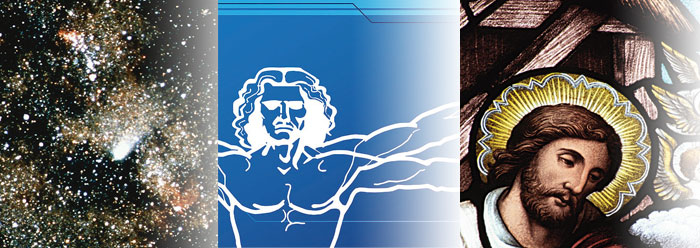Previously in this column, we suggested that the text of Scripture is more to be trusted than the theology of those who study the text. Even though many godly scholars have made a genuine effort to understand and apply the words of God, it is ultimately the responsibility of every Christian to search the Scriptures daily (Acts 17:11) to verify the teachings of men against the words of God's inspired writings.
Debates among biblically-committed theologians and among godly pastors rarely center on salvation issues, the deity of Jesus Christ--or even over the inspiration of Scripture. Usually these arguments are about "bigger" pictures, such as eschatology and ecclesiology. And, yes, the meaning of the creation account is becoming one of the more heated debates among evangelicals.
Various hybrid theories about creation thrive among evangelicals. The gap theory popularized in the early 1900s is still embraced by some. Several iterations of the day-age theory are more common, with progressive creation widely held among academics. Then there are the so-called "naïve literalists" (who accept the words of Genesis at face value and as actual history).
What evidence exists besides the biblical text?
Although the Bible is clear that without faith it is impossible to please God (Hebrews 11:6), there is ample evidence that the Creator exists.
The universe itself (Romans 1:20) identifies His eternal power and triune nature. Creation becomes the universal "speech" and "language" of God to man about Himself (Psalm 19:1-3). The triune Godhead is certainly in view; and not only the Trinity, but the "nature" of that Godhead.
Human existence itself (Acts 17:28-29) demonstrates the eternal presence of the Creator God. This would include the innate knowledge present in all humanity, but especially the powerful evidence of the "new" creation in believers (2 Corinthians 5:17; Ephesians 4:24).
The incarnation of the Lord Jesus, the "Word made flesh" (John 1:14; Philippians 2:5-9), incorporates the fullness of God (Colossians 2:9). Christ's life and ministry are vivid evidence of His omnipotence--especially the seven great miracles of creation recorded in the Gospel of John.
Thus, we have a threefold historical witness:
- The universe--the "things that are made"
- Humanity--and the new birth
- Jesus Christ--His life, word, and ministry
These revealed witnesses are progressively more clearly and accurately understood. The universe is designed to "speak" and "show" invisible things, but these must by their vastness be both difficult and mysterious to discern. The new creation of the salvation event is certainly more visible--since the lifestyle and character of each individual should reflect a more visible righteousness. Those who are born again (John 3:3) are the "epistle of Christ" (2 Corinthians 3:3), God’s "workmanship, created in Christ Jesus unto good works" (Ephesians 2:10).
The ultimate Truth, however, is the Lord Jesus Christ Himself (John 14:6) and His Word that He has given us (John 17:17). Jesus insisted that the miracles that He did while He was here on earth were enough proof--even if we have a hard time believing what He has said (John 10:38).
We may have difficulty seeing the invisible eternal power and Godhead from the evidence written into the very fabric of the universe, and we may see contradictions in the lives and testimonies of those who claim to participate in the "divine nature" (2 Peter 1:4). It is even possible to deny the reality of the historical record and witnesses of Christ’s miracles. But the written record, the words of God, they shall not pass away (Matthew 24:35) and those words have "eternal life" (John 6:68).
If we are unable to trust the words of God, then we are surely doomed to wander in the ignorance of unbelief, "ever learning, and never able to come to the knowledge of the truth" (2 Timothy 3:7).
* Dr. Morris is Chief Executive Officer of the Institute for Creation Research.
Cite this article: Morris III, H. 2009. Three Creation Witnesses. Acts & Facts. 38 (8): 22.




